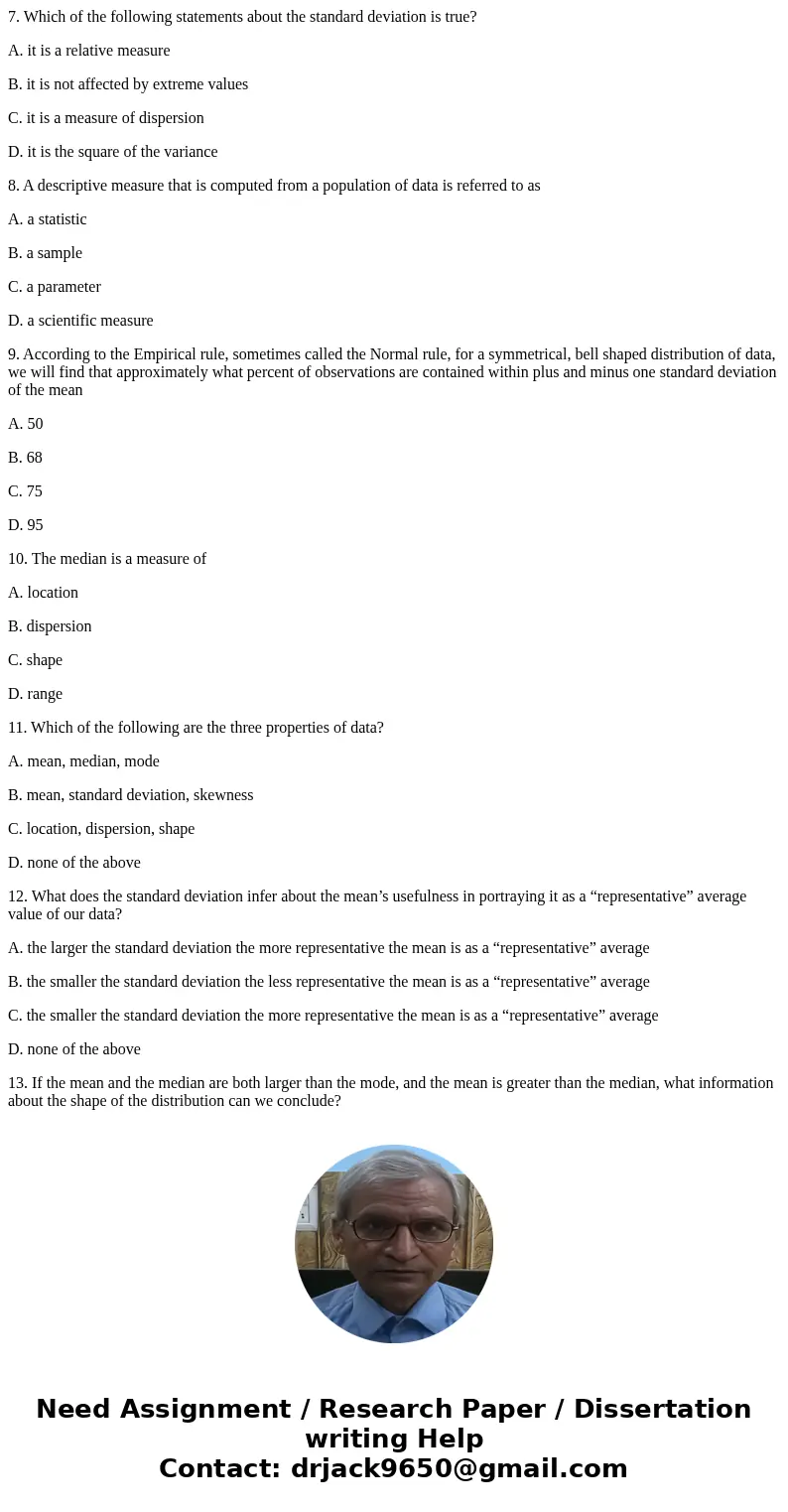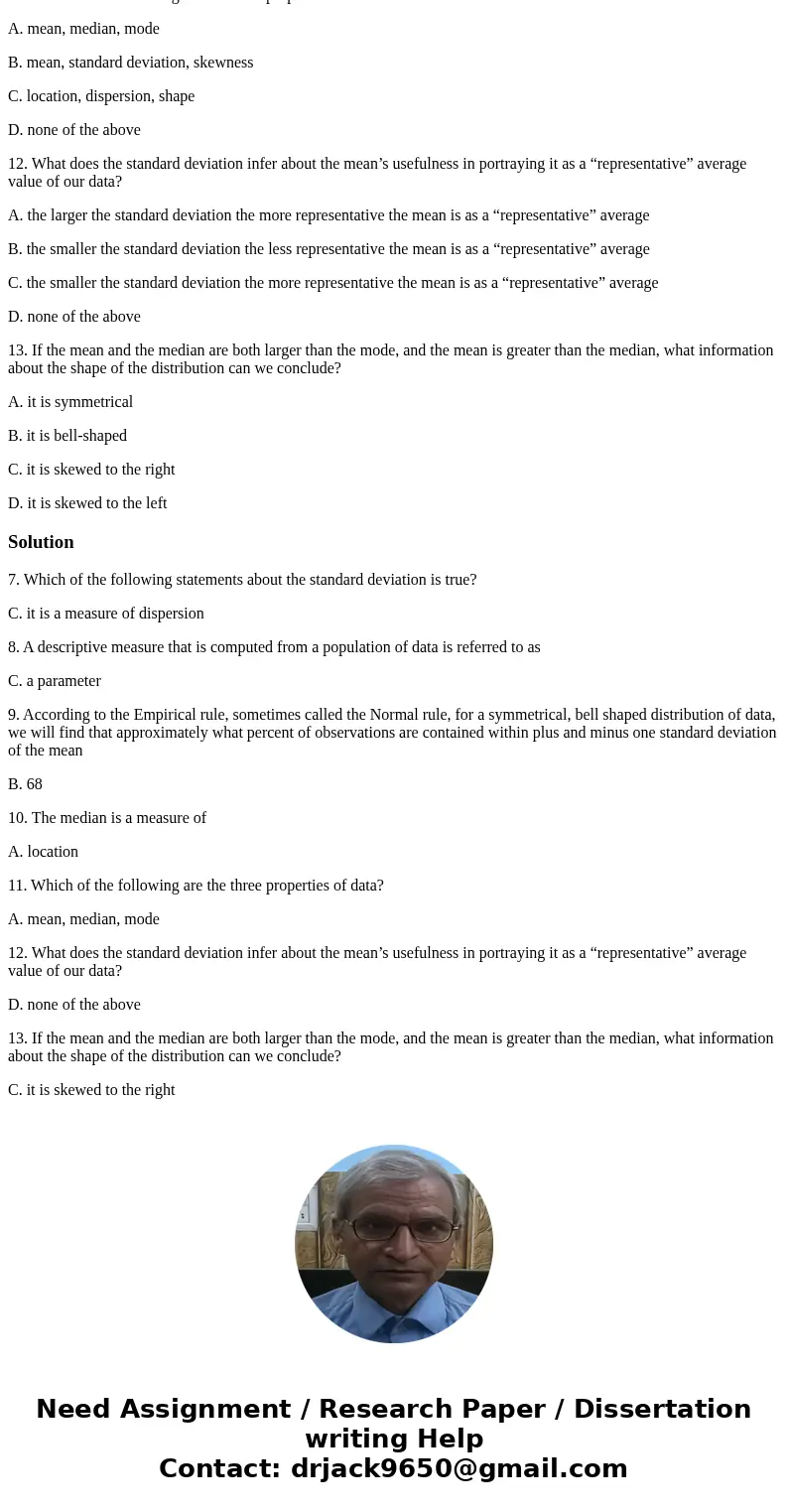7 Which of the following statements about the standard devia
7. Which of the following statements about the standard deviation is true?
A. it is a relative measure
B. it is not affected by extreme values
C. it is a measure of dispersion
D. it is the square of the variance
8. A descriptive measure that is computed from a population of data is referred to as
A. a statistic
B. a sample
C. a parameter
D. a scientific measure
9. According to the Empirical rule, sometimes called the Normal rule, for a symmetrical, bell shaped distribution of data, we will find that approximately what percent of observations are contained within plus and minus one standard deviation of the mean
A. 50
B. 68
C. 75
D. 95
10. The median is a measure of
A. location
B. dispersion
C. shape
D. range
11. Which of the following are the three properties of data?
A. mean, median, mode
B. mean, standard deviation, skewness
C. location, dispersion, shape
D. none of the above
12. What does the standard deviation infer about the mean’s usefulness in portraying it as a “representative” average value of our data?
A. the larger the standard deviation the more representative the mean is as a “representative” average
B. the smaller the standard deviation the less representative the mean is as a “representative” average
C. the smaller the standard deviation the more representative the mean is as a “representative” average
D. none of the above
13. If the mean and the median are both larger than the mode, and the mean is greater than the median, what information about the shape of the distribution can we conclude?
A. it is symmetrical
B. it is bell-shaped
C. it is skewed to the right
D. it is skewed to the left
Solution
7. Which of the following statements about the standard deviation is true?
C. it is a measure of dispersion
8. A descriptive measure that is computed from a population of data is referred to as
C. a parameter
9. According to the Empirical rule, sometimes called the Normal rule, for a symmetrical, bell shaped distribution of data, we will find that approximately what percent of observations are contained within plus and minus one standard deviation of the mean
B. 68
10. The median is a measure of
A. location
11. Which of the following are the three properties of data?
A. mean, median, mode
12. What does the standard deviation infer about the mean’s usefulness in portraying it as a “representative” average value of our data?
D. none of the above
13. If the mean and the median are both larger than the mode, and the mean is greater than the median, what information about the shape of the distribution can we conclude?
C. it is skewed to the right


 Homework Sourse
Homework Sourse